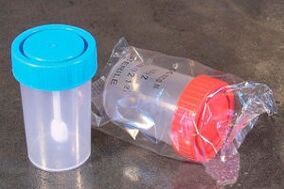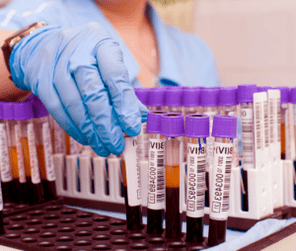
Testing for parasites in adults is a reliable way to detect intestinal and other forms of helminthic infestations. Based on the results obtained during the research, the specialist prescribes appropriate treatment methods.
Get tested for parasites regularly, not when symptoms indicate the presence of worms. Similar research is necessary for both children and adults.
Basic ways
Cal

The traditional way of detecting worms in humans is the analysis of feces. During the study, experts examine a fragment of feces for the presence of parasite eggs. In order to obtain the most reliable results, at least 2-4 studies are carried out with an interval of several days.
It allows the recognition of parasites such as:
- nematodes or roundworms;
- tapeworms (cestodes);
- trematodes (flukes).
This analysis for parasites, since it is quite simple, cannot claim that the results are reliable.
In order to obtain a reliable result, it is preferable to submit the stool sample to the laboratory within 45 minutes after bowel movement. If this is not possible, you can store the container with the sample in the refrigerator, but not longer than 8 hours.
Histological co-program
The next method used to diagnose worms in adults is histological coprogram. This study includes a microscopic analysis of the composition of feces based on the study of its part. Such a procedure will reveal worm larvae, fragments of their bodies, as well as the presence of mature adults.
The disadvantage of this technique is the impossibility of determining the specific type of parasite that develops in the human body.
Blood

The most effective are studies based on the patient's blood. This analysis determines the antibodies and antigens contained in the blood against certain types of parasitic organisms. It also provides information on the type of helminth, its ability to reproduce and its quantity.
Due to the fact that helminthic invasion is characterized by the release of toxic waste products of the parasite, the composition of the blood changes. This allows doctors to suspect the presence of worms.
A variant of this study is an enzyme immunoassay.
The sensitivity of this method is quite high (it reaches 90%). Even if any other studies do not reveal the presence of worms, the enzyme immunosorbent assay provides comprehensive data on the type and prevalence of helminths.
Blood is taken for the study on an empty stomach, from a vein.
The blood sample is tested within 2-5 days. The results obtained are deciphered by the attending physician.
The analysis will allow monitoring the dynamics of the disease caused by helminthic invasion.
What parasitic diseases does this study reveal? That:
- ascariasis;
- fasciolosis;
- amebiasis;
- toxoplasmosis;
- giardiasis;
- opisthorchiasis;
- cutaneous and visceral leishmaniasis;
- cysticercosis.
You can do parasite tests in various private clinics, whose experts guarantee quick results.
When to take
Sometimes helminthic invasions occur without pronounced symptoms, which greatly complicates the possibility of diagnosis and timely treatment. However, there are distinctive features, among them:
- persistent headaches;
- frequent colds;
- prison;
- sleep disorder;
- fragility of nails;
- the appearance of cracks on the heels;
- bowel disorder;
- itching in the anus.
Parasitic invasions are fraught with serious complications. A large number of worms connected by a ball can cause intestinal obstruction. Among the other dangerous consequences are hypovitaminosis, beriberi, anemia, jaundice, chronic cell damage that causes the development of cancer.






































